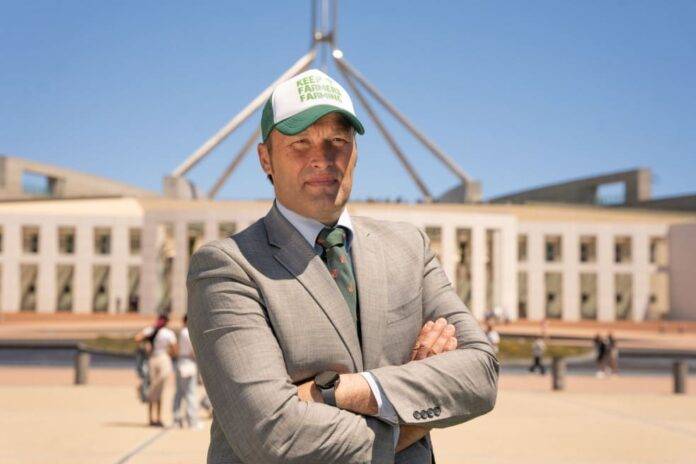Australian agriculture expressed dissatisfaction with Treasurer Jim Chalmers’ latest Federal Budget, citing its lack of investment in rural and regional Australia. The National Farmers Federation (NFF) emphasized the importance of the upcoming election to deliver essential investments to secure and enhance Australian agriculture in an increasingly uncertain environment. NFF president David Jochinke stated that the budget presented an opportunity for the Federal Government to support Australian agriculture and provide a much-needed boost to the economy.
While acknowledging some new funding initiatives, such as $3.5 million for a National Food Security Strategy, Mr. Jochinke highlighted that the budget fell short of the necessary investment to unlock agriculture’s full potential. He emphasized the need for a sharper government focus to address major geopolitical, environmental, and societal challenges faced by farmers. The NFF urged the government to ensure the continued viability of farming operations and the affordability of food for Australian families.
Mr. Jochinke highlighted the importance of trade in the agriculture sector and applauded the government for addressing farmers’ concerns about the evolving trade landscape. The budget included funding for international engagement, market access, and a Buy Australian campaign, but the NFF expressed disappointment over the lack of transparency regarding Murray-Darling Basin buybacks.
The NFF called for redirecting funds from buybacks to direct measures like pest and weed eradication and native fish breeding programs. Mr. Jochinke stressed the need for significant investment in pest and weed control, infrastructure, and ecosystem services to protect the environment and support sustainable agriculture practices.
The NFF presented 20 strategic investments to the government to strengthen agriculture and the economy, including funding for infrastructure, fresh produce suppliers, and pest management. However, Mr. Jochinke highlighted the need for billions more to be invested in fixing rural roads, stimulating regional housing, and overcoming workforce challenges.
GrainGrowers CEO Shona Gawel expressed disappointment in the budget, stating that it missed the opportunity to deliver meaningful investments in regional growth and sustainability. She emphasized the importance of market diversification, climate resilience, and infrastructure development for the grains industry. GrainGrowers called for further investment in economic engagement with India, technical market access services, and climate change adaptation measures.
NSW Farmers president Xavier Martin warned of the consequences of inadequate federal funding on food production, infrastructure, telecommunications, and biosecurity in rural areas. He emphasized the need for targeted investment to address road and rail infrastructure, telecommunications, and biosecurity threats faced by farmers. Mr. Martin highlighted the importance of investing in farming communities to drive productivity, ensure food security, and support regional development.
Victorian Farmers Federation president Brett Hosking expressed disappointment with the budget’s lack of substantial investments in Victoria’s rural road network and renewable energy management. He called for increased funding to address infrastructure challenges and ensure a smooth transition to renewable energy sources in rural areas.
In conclusion, the agriculture industry highlighted the need for significant government investments to support sustainable farming practices, improve infrastructure, and enhance market access. As the country prepares for the upcoming election, all parties are urged to prioritize agriculture and rural development to ensure the continued success of Australian farmers and the broader economy.




